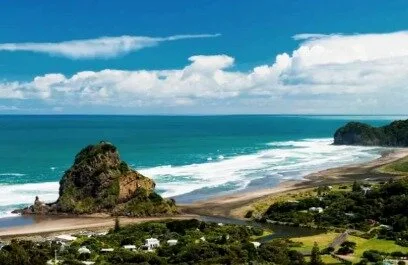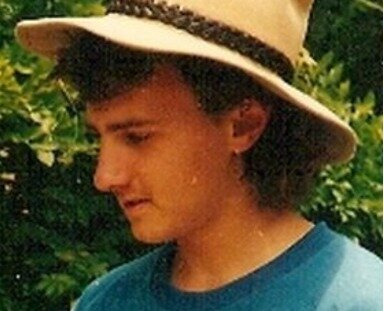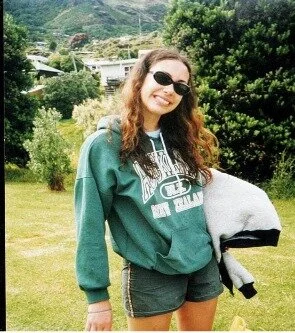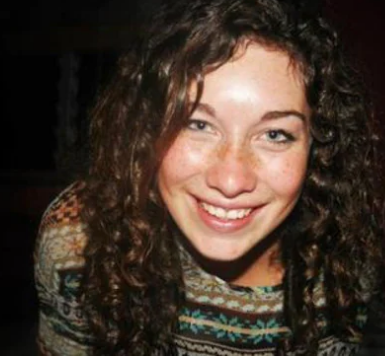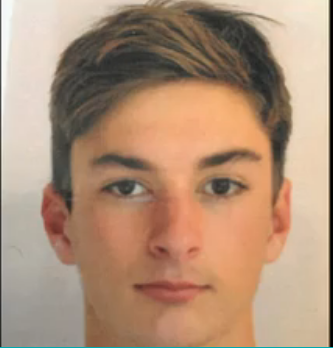The disturbing and bizarre disappearances on Auckland's west coast beaches
Revised May 2024
Since 1992, six people have vanished from the same small corner of Auckland’s west coast, on one of New Zealand’s most famous beaches, Piha Beach. The authorities are convinced that these were cases of misadventure or suicide. But is this true or a darker side to this iconic stretch of coast? What is causing these bizarre disappearances in this beautiful but isolated part of the world?
Experts who have lived in the area for many years and taken part in countless rescues dismiss claims that the disappearances are linked to heavy surf in the Tasman Sea, or people slipping off the well-marked trails near the cliffs.
A University of Auckland study found that of the 219 drownings across New Zealand between 2008 and 2017, 58 per cent of the bodies were recovered within just 24 hours, and the majority of those were found at the same location. Seven per cent were found within 0.6 miles (1 km) of where they were reported missing, 13 per cent between 0.6-3.2 miles (1-5 km) away, and nine per cent were found more than 3.2 miles (5 km) away. Just nine per cent were never seen again.
Between 2003 and 2020, Piha lifeguards made more than 1588 water rescues. Only one death occurred during that period in which a body was not recovered.
Where is Piha Beach and the legends around it?
Piha is New Zealand’s most famous surf beach and it is located on the west coast of the North Island, 40 km from the city of Auckland. It has a reputation for awesome surf which rolls in off the Tasman Sea.
Nearby are the highest coastal ridges in New Zealand, at points as high as 240m above the rough sea below.
The area has a strange history. The nearby tracks are guarded by the wooden statue Te Ahua o Hinerangi, whose own tragic tale is the stuff of local legend. The husband of Hinerangi, the Maori chief’s beautiful and only daughter, was part of a fishing party on the rocks below when a large wave engulfed them and he was killed. Hinerangi could not be comforted and she would sit every day on the point, gazing out at the ocean. Today, from a certain position on the cliffs, it is said one can see her life-size figure sitting there gazing out to sea.
Ahua means “likeness” in Maori, and the legend was that Hinerangi was taken and her face imprinted on the rock.
Former Waitakere City mayor Sir Bob Harvey said the area had a haunted past. He said he has seen the unmistakable face of a Maori woman many times on the cliff face while running the track in the early morning light, “The whole place is steeped in tragedy and legend.”
Rock formations at Mercer Bay.
The disappearance of Quentin Godwin
In May 1992, Quentin Goodwin left a note at home indicating he was going to Piha to end his life. But he returned home, reporting to the driver who ferried him from Piha that he had second thoughts. Five days later, he vanished, never to be seen again.
At 17, Quentin was diagnosed as being manic-depressive or bipolar. However, at the time leading up to Quentin's disappearance, he was doing fine studying in 7th-form subjects he enjoyed
On May 20 1992 he told his younger sister he was going to the village to his after-school job at the supermarket, he walked out of the family home and disappeared. The next morning a note was found in Quentin’s bedroom. His mother Sarah said, “I think the note wasn’t explicit, you could read it as a suicide note or just a deeply unhappy note. There was obviously a plea for help, there was a huge amount of confusion and pain.”
Over the next few years, there would be sightings of Quentin, posters put up all over New Zealand, and strange phone calls from a woman claiming to be his wife, saying they had a baby together, but all these leads came to nothing.
In February 2014 an inquest concluded Quentin was dead, even though there was no evidence to prove this.
The disappearance of Iraena Asher
Iraena Asher
At 9.30 pm on Sunday, October 10, 2004, Julia Woodhouse and her teenage son, Henry, were driving back into Piha from Auckland. As they rounded a bend, they were shocked to see a young woman on the road wearing nothing but underwear, Ugg boots, and a sweatshirt. Julia stopped the car and asked the woman if she needed help. Her name was Iraena Asher, a 25-year-old trainee teacher, and part-time model.
Iraena Asher was bipolar and affected by alcohol and drugs that night. The later police investigation claimed her behavior had become increasingly erratic over the previous days. Her family disagreed as both her father and sister had seen her just the day before she disappeared. But it seems likely she was in the grip of a manic episode. She had admitted both missing and doubling up on her mood-stabilizing lithium pills in the month prior, and a long-term relationship had ended badly only a week before. Police claimed stress could cause her to relapse into strange behavior.
On October 10, Iraena had gone to a house at Piha with her new boyfriend and another couple. They later testified that she went down to the beach alone at some point and returned soaked and cold. She refused a change of clothes and chose to go naked beneath a duvet. Her boyfriend later left without her, at her request.
Other people came and went from the house. At around 9 pm, Iraena Asher called the police, claiming she’d been drugged and was being pressured into having sex. The police called her a taxi, which never turned up. She left the house wearing just underwear, boots, and a sweatshirt.
Julia took Iraena to the Black Sands Lodge on Beach Valley Rd, which she ran with her partner, Bobbie Carroll. Iraena took a shower and they offered her a bed for the night, but she remained suspicious of the couple and declined.
They didn’t call the police, but Carroll thought she might be coming down off recreational drugs. At least one person in the house she’d left had taken ecstasy the previous night.
Asher called her ex-boyfriend’s mother instead of the police, then watched television with Henry and said she decided she would stay the night and would sleep in the lounge, with French doors that opened out onto the garden and the road leading to the Tasman Lookout.
Just after 1 pm, Bobbie and Julia went to sleep and then Iraena left through the lodge through the French door. Carroll gave chase but found only the dressing gown, which she had given to her to keep her warm.
Around 1.30 am, Iraena was seen naked beneath the street light near the Piha store by a couple out walking their dog. It was bitterly cold, windy, and stormy. The dog walkers were shocked but did nothing. They watched Iraena talking to a street light, kneeling, and kissing the ground before she walked towards the beach. She disappeared into the darkness and was never seen again.
Bobbie had returned to the lodge and called the police, but the search didn’t start until 4 am.
It was presumed that she walked out into the ocean, but the surf and sea conditions were huge. The waves were four to five meters high and the water was bitterly cold.
What happened to Iraena Asher?
It would have to be very difficult for Iraena to voluntarily enter the water as the shorebreak was significant that night. She would have been thrown back onto the beach by the crashing waves. But shoreline searchers and the rescue helicopter found nothing on the beach nor in the headlands to the north where bodies would drift in the current. When the surf had dropped during the search, a body would be easy to spot in the water. Searchers climbed Cathedral Cave and explored the coves all the way to Bethells. The search was called off after five days with no sign.
Veteran Surf Lifesaver Duncan Clarke has patrolled the Piha coast for more than 30 years and dragged many bodies out of the water in the area, including partially decomposed bodies, scratched or maimed from the rocks, or partially devoured by sharks or other marine life.
Clarke recalls the days and weeks that followed Iraena’s disappearance as “miserable”, and explains how the conditions that night simply did not lend themselves to her being swept away. “The conditions that night were atrocious.
Onshore, 20-knot winds, possibly some of the worst conditions you could have out here. At least 3-4m swells all breaking right on the shore, south-west winds. It was cold—bitterly cold. In my experience, immediately, I felt it was more likely that if someone had gone in the water and drowned, they would have been swept back up onto the shore.
One hundred per cent. I was expecting her to be found coastal, in the wider Piha area, absolutely. It’s not uncommon for a body to go under for three to seven days until the gases start to build up through decomposition etc, and then they will float up again closer to Bethells [Beach]. I personally don't know what happened to her, I can only hope that we did our job to the best of our ability with Search and Rescue [teams] and that ultimately, she didn't go in the water that day. If she had [gone in the water], we would have found her.”
Coroner Peter Ryan ruled that, while Iraena “had a lot to live for”, there was “a strong probability that she went into the sea in the early hours of October 11, 2004, and subsequently drowned”. Senior Sergeant Mark Fergus, who led the five-day search for her, agreed with the finding, arguing her body would probably have been found if it was in the bush, and that foul play was unlikely
The disappearance of Cherie Vousden
Cherie Vousden
42-year-old Cherie Vousden was a mother to a young daughter, and she often walked or ran the Mercer Bay loop and knew it well. The loop takes around 20 minutes to complete. Her brother Darren Roberts, “She loved the sunsets out there. She would come back home with daisies she had picked from Log Race Rd.” Her sister-in-law, Rachel Vousden, said it was Cherie’s “thinking spot, she went there regularly”.
On the evening of Saturday, December 22, 2012, Cherie drove down Log Race Rd and parked her car near where the loop track began. A couple saw her at around 7.15 pm as she walked south down the track, with a bottle of wine in hand, perhaps to watch the sunset. Her car was found unlocked, with the windows down and empty a few hours later.
The police made an intensive search for Cherie by land, sea, and air in good weather over the following days. They believed she had fallen from the cliffs into the water and perished. Inflatable rescue boats (IRBs) from the local surf clubs were used to search the coast from North Piha to Karekare. The Westpac rescue helicopter joined them. But the search found nothing and wound down after a few days. Then friends and family continued the search, but they also found nothing. Cherie had vanished.
The passenger seat visor was left down, and the vanity mirror had swipe marks on it, indicating it had been recently cleaned.
The coroner came to the conclusion Vousden had, in her presumed semi-intoxicated state, hopped the barrier, walked to the cliff’s edge, and accidentally fell off the Mercer Cliffs to her death.
No evidence was found to indicate foul play or the involvement of any other person. A broken bottle of wine was the only object of interest found in the search, but it could not be linked to the bottle Cherie was seen with earlier. The coroner said all the circumstances pointed to her falling and being swept away by the sea. But that’s a conclusion rejected by the families.
Rachel Vousden said, “Once is a tragic accident. But when you have this many missing people who not only all look the same but who have all disappeared in the same area without a trace? No way?”
The disappearance of Kim Bambus
Kim Bambus
Kim Bambus was a 21-year-old nurse at Middlemore Hospital. Originally from the Bay of Islands, she had lived in Auckland for four years. Her sister, Storm Bambus, said Kim was a “tiny little thing and the life of the party” and “very independent”. Like Cherie, Kim Bambus regularly ran the Mercer Bay loop.
On the morning of Friday, March 24, 2017, Kim left her Ponsonby flat and went shopping at a Countdown on Williamson Ave, buying some snacks. The supermarket’s CCTV footage confirms this last known sighting of her.
She had told her flatmates that she was going for a run at Piha. When she didn’t return that evening, they drove the route from the city to the beach to try to find her. They reported her missing around 8 pm that evening. Five hours later, her bright-yellow Hyundai Getz was found in the Log Race Rd car park, close to the start of the loop track, just where Cherie’s car had been found, with her mobile phone still inside.
Police immediately started a search in the area around Log Race Rd and down the Ahu Ahu track with ground teams and helicopters. Forty police and Land Search and Rescue (LandSAR) personnel were soon committed to the operation, which was hampered by low clouds and rain. Several abseilers searched the cliff face. The coast was thoroughly searched using a police helicopter, and lifeguards did the same on IRBs in the sea.
By Sunday, March 26, drones had been deployed in the area, but nothing had been found. Shoreline searches were then organized with the locals at Karekare and Piha. But there was no sign of the runner Kim, and just like Cherie, she had vanished into thin air.
Rachel Vousden, Cherie’s sister-in-law said after Kim’s disappearance, I’ve been out there every year, and it’s the same as it was. You follow the track. It’s very hard to go off the track, it’s very dense bush.” She reckoned something didn’t add up about the disappearances. “If they are falling into the ocean,” she said of the two missing women, “why is nothing floating up? Why is nothing showing up?”
The disappearance of Laurence Wu
Lawrence Wu
Guoquan Wu, 22, also known as Laurence, was last seen at about 1.40 pm on March 10 at St Luke's Liquor Centre in Auckland before his car was found in the Piha area. His phone was also last used there.
He was reported missing on March 12, 2019, but almost a year later police called off the search. Auckland City Police Sergeant Tania Kingi said despite extensive efforts, no information led to Laurence being found and all lines of inquiry have been exhausted. "The police staff involved in this investigation wanted nothing more than to be able to provide the answers that the family so desperately seeks at this time, and it is unfortunate that we have not been able to achieve this, despite our best efforts."
Kingi said multiple searches were carried out across Piha and the wider Waitākere area. Police also examined the contents of his vehicle, which was found at Piha Beach, including his laptop.
The matter was not being treated as suspicious and there was no evidence of foul play. No trace of Wu has ever been found.
Eloi Rolland disappearance
Eloi Rolland
On March 7, 2020, French teenager Eloi Rolland went missing near Piha Beach.
Cell phone data placed him in the vicinity of Piha Rd and Scenic Dr at 9.18 am on March 7, the morning of his disappearance.
After an “exhaustive” land search spanning more than 1600 hours, police suspended the physical search for Rolland in May, pending new information. A teenager’s t-shirt was found in Karekare bush, but it was not clear if it was Eloi’s.
Detective Senior Sergeant Callum McNeill said there had been no significant updates, but police continue to be in regular contact with Rolland's family in France.
His parents, Thierry and Catherine, say they have not given up hope. “It will be very difficult this year as we are a very close family and not being able to see our son physically is going to be hard on all our family,” they said in a statement.
What happened near Piha Beach?
The Mercer Bay track doesn’t run along the very cliff edge. It’s well-graded and not technically difficult, with few places where someone might fall. The few dangerous points are fenced off to prevent accidents. In addition, the cliffs may seem steep and vertical when you’re standing on top of them, but they mostly arc out seaward, usually many meters, and they are studded with ledges and sharp outcrops of rock.
The point is made by the death of Fiona Hamilton. On Sunday, September 3, 2006, Fiona Hamilton, a 43-year-old Australian woman, lost her footing above Mercer Bay and fell down the cliff face. Fiona had asked her husband to take a photo of her. She went off the track and stepped back too far. She fell 150m down the cliff face and onto a ledge 50m from the sea. She died instantly, but her body was held by the cliffs and was quickly found. When the Auckland Line Rescue Team made the difficult recovery of Hamilton’s body, the abseilers had to frequently stop to place protection on their ropes where they rubbed against the sharp rocks.
It takes six or seven seconds for a human body to fall 200m, by which time it’s traveling at more than 125 miles/hour (200km/hr). So, a person falling off the cliff would almost certainly leave traces of body parts or clothes on the cliff face on the way down.
Even if Cherie Vousden and Kim Bambus fell clear of the cliffs somehow at a certain spot and into the water, it’s likely that their bodies would be found as they began to float after decomposition. Victims of drownings at Piha are usually found a few days later, up the coast at Muriwai.
If the bodies are not found in the sea, they generally turn up in the bush.
The bush also often eventually gives up its dead. An archaeologist once picked up an unusual-looking rock as he walked down the Ahu Ahu track, part of the Mercer Bay loop. He realized it was a human skull, discolored and moss-covered. A quick search above the grizzly find revealed the remains of an amateur botanist who vanished seven years earlier on a fern-gathering expedition.
Sir Bob Harvey, a surf lifesaver for more than 64 years along the west coast, said he believes there is no way these people could make it to the bottom of the cliffs without leaving a trace. Harvey has pulled many bodies from the sea in the area.“ It never made sense to me, the notion that she would, or even could, wade out into that surf. So then, where is Iraena Asher? It's a mystery, but I don't believe in people vanishing without a trace. It’s never pleasant, especially after a few days or a week, but bodies turn up. We find something, always. I have researched this, I have thought hard on this, and I believe these women, these young men and indeed Asher, were abducted/I believe Asher to be separate, possibly struck by a vehicle even accidentally and disposed of, not at Piha. But in our other cases, they’re linked. I absolutely believe that. If someone goes into the water at Piha/Mercer Bay and drowns, the overwhelming odds point to them being found at one of three locations; the northernmost end of Piha, Bethells Beach, or the Kaipara Harbour, within three to 10 days.”
As with all small communities, at Piha, there is a dark side. It has had a notorious drug problem for example. But the women and men in the cases highlighted had a lot to live for, including having children. Cherie and Kim knew the Mercer Bay loop well and were unlikely to slip and fall by carelessness. They were surrounded by family and friends and these people all considered their disappearances didn’t make sense.
Exclusive articles for members of StrangeOutdoors that are not available elsewhere on the site.
See the latest Exclusive members-only articles on StrangeOutdoors.com
Read other strange stories from New Zealand
The strange death of Emma Campbell in New Zealand's Christchurch
The strange hiking death of Jason Chase in New Zealand's Tamaki Reserve
Sources
https://www.news.com.au/lifestyle/real-life/news-life/women-are-vanishing-in-new-zealand-under-eerie-circumstances/news-story/d4647498b39d5049c41fda492b6e8d50
https://www.stuff.co.nz/national/crime/300189370/the-missing-people-of-piha-25-years-six-cases-no-answers#:~:text=On%20March%207%2C%202020%2C%20French,young%20%E2%80%93%20have%20never%20been%20found.
https://www.metromag.co.nz/society/society-crime/the-vanishing-the-three-women-who-disappeared-on-aucklands-west-coast-beaches
https://www.dailymail.co.uk/news/article-4371996/Mystery-surrounds-missing-women-New-Zealand-track.html
https://www.reddit.com/r/UnresolvedMysteries/comments/63bqb3/mysterious_disappearances_of_three_women_from_the/
https://www.stuff.co.nz/auckland/119777677/police-say-all-lines-of-inquiry-exhausted-in-search-for-missing-auckland-man
https://www.getsurrey.co.uk/news/surrey-news/mothers-emotional-turmoil-missing-son-9289017

